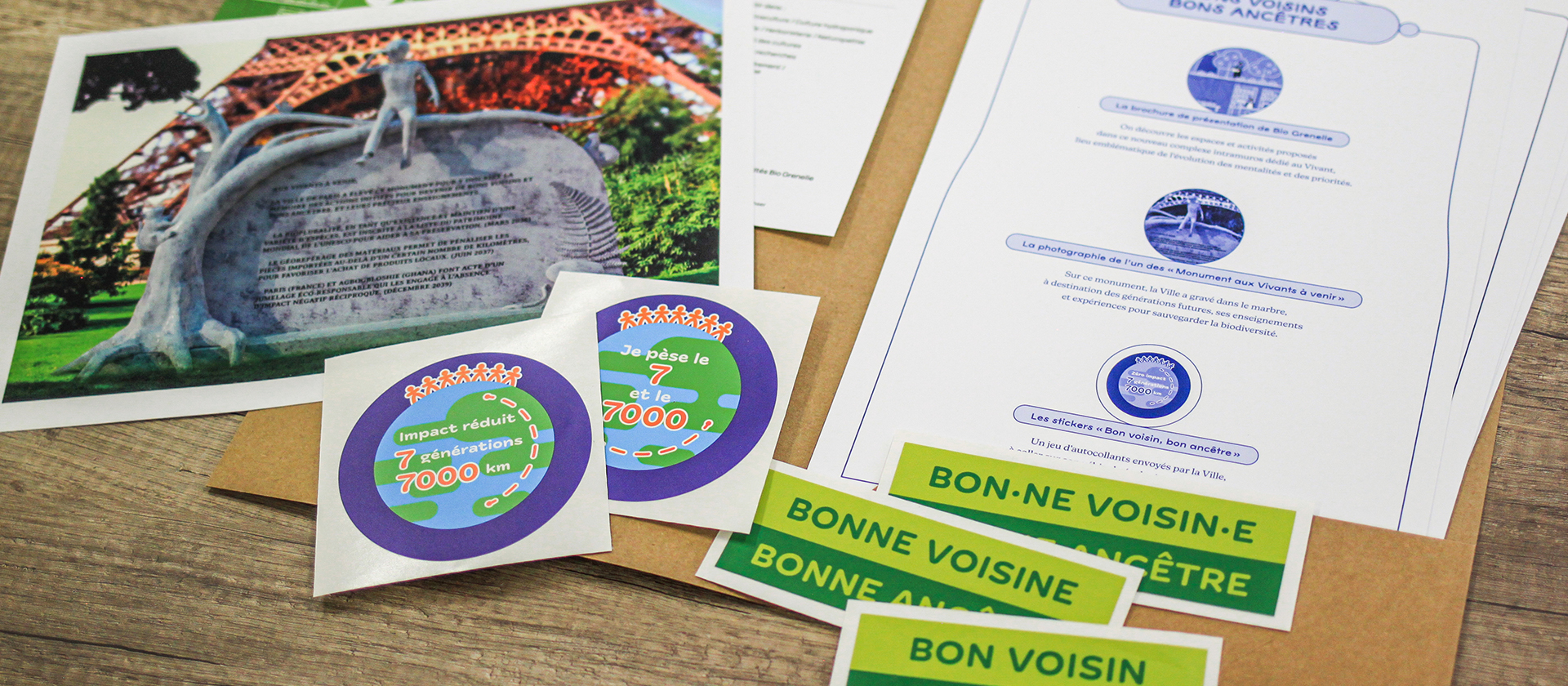
Futurs Vivants
F(r)ictions for preserving biodiversity
Futurs Vivants (Living Futures) is an initiative by the City of Paris as part of its resilience and forward-planning programme. This exploration aimed to raise awareness and prompt reflection among Parisians about the potential effects of global biodiversity decline by 2040. More specifically, the intention was to highlight the repercussions this erosion of nature could have on all living organisms in Paris, as well as at the metropolitan and regional scales.
To support this initiative, we have developed a bespoke “Futures box”, designed to assist City of Paris civil servants in running prospective workshops and projection-debate experiences across various districts of the capital.
Futurs Vivants is conceived as a versatile, educational, and playful tool, offering four scenarios that explore possible futures for biodiversity, with activities ranging from 30 minutes to a full day.
This box works as a toolkit and contains a series of resources to help reflect on current issues as well as growing challenges of biodiversity loss, and to imagine the resilience of the Parisian territory: fictional scenarios, speculative artefacts illustrating these narratives, workshop formats, and even a role-playing game for full immersion into these possible futures.
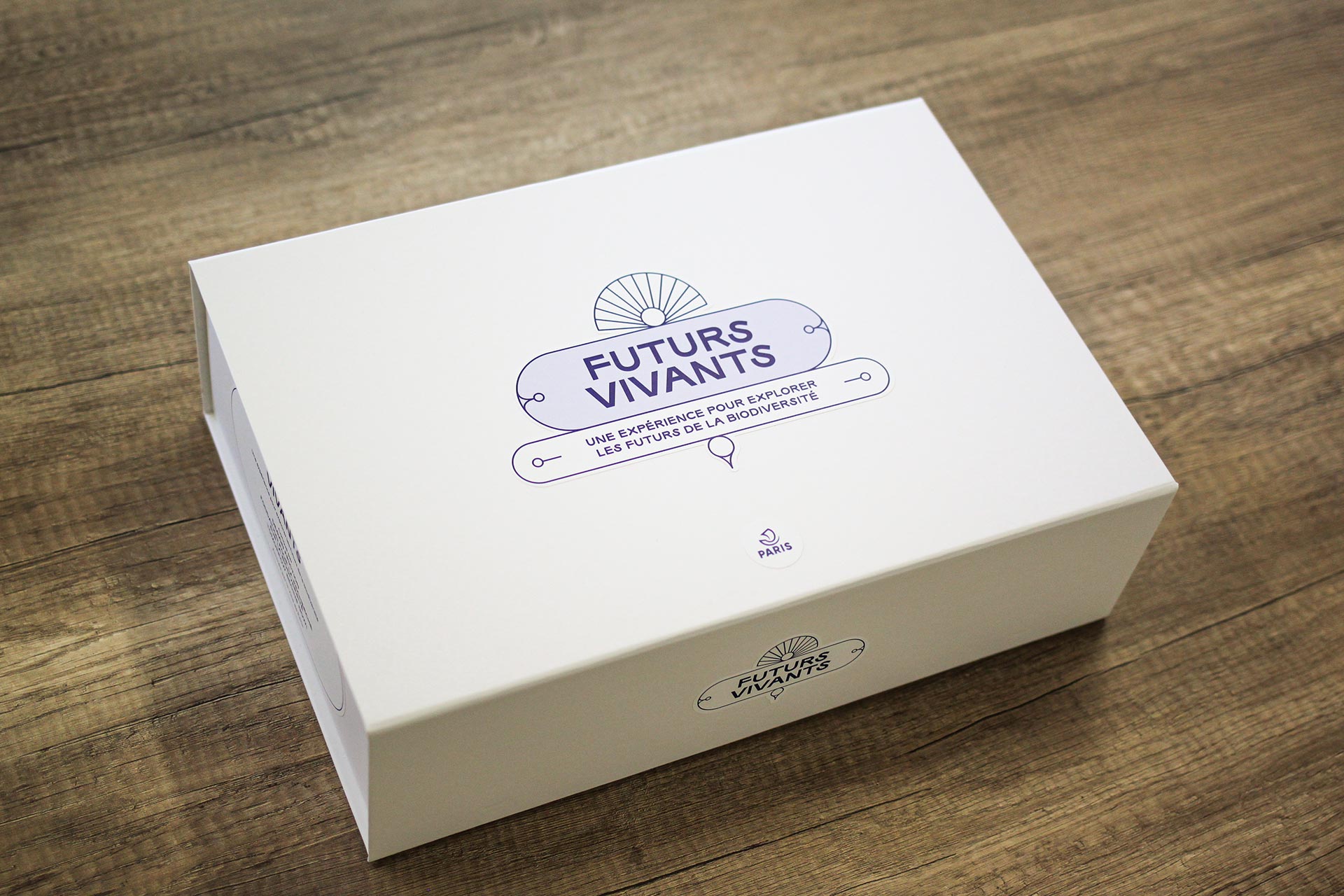
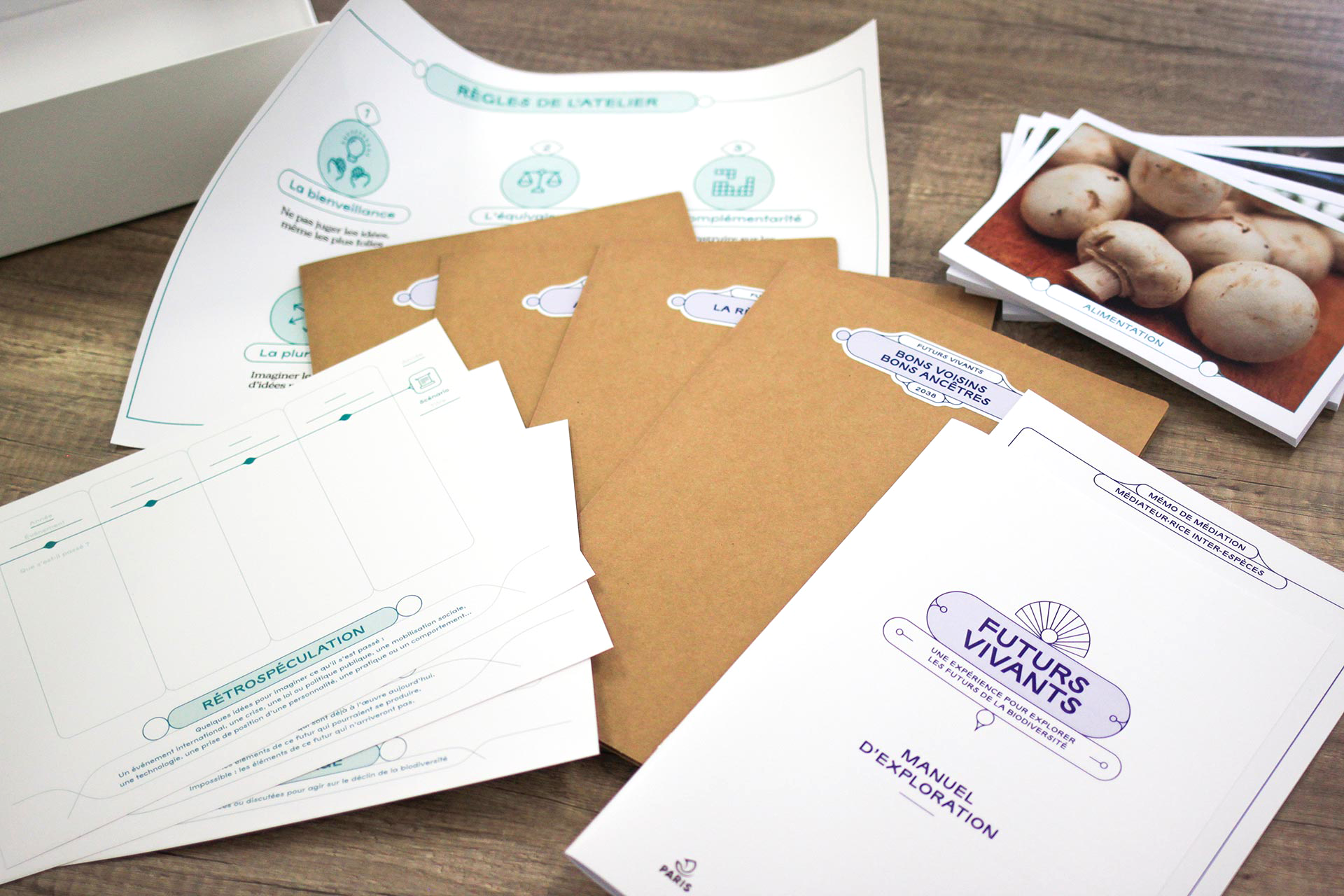
↑ This multi-futures capsule is a didactic and playful kit to spread, discuss, and enrich the speculative scenarios.
Through its scenarios and projection tools, Futurs Vivants offers a collective detour into tomorrow, driven by complementary ambitions:
- Raising awareness of current issues
The content of Futurs Vivants was co-created with the support of the Foundation for Biodiversity Research (FRB), taking into account the complexity of biodiversity erosion and its systemic consequences on the habitability of the territory. Health, food, housing: the fictions make it easier to understand how the decline in biodiversity is already affecting the lives of Parisians.
Futurs Vivants also serves as a barometer of the public’s knowledge and broader engagement with environmental issues in the capital—gauging prevailing misconceptions, collective imaginaries, and available room for manoeuvre.
- Anticipating future transformations
Futurs Vivants offers four radical and deliberately provocative fictions, pushing to the extreme the signals identified by the foresight consultancy Tomorrow Begins Now! These scenarios extrapolate the current state of knowledge to speculate on what daily life in Paris might become when ecosystems degrade, and conversely, when they are fully preserved.
Projecting ourselves into these futures is a way of preparing for both expected and unforeseen changes, starting today. Like an anticipatory theatre play, these scenarios allow us to “rehearse” the consequences of biodiversity loss before they unfold and, then, to envision more desirable alternatives for the common good and all living beings.
- Debating to inform collective action
Futurs Vivants is also a democratic exercise. The design fictions provide a basis for projection, imagination, and perspective, but above all for discussion. Since the explored trajectories raise more questions than answers, they need to be debated to assess their plausibility and preferability.
The City of Paris invited its residents and users to take part in the Futurs Vivants workshops to discuss, challenge, or enrich the perspectives outlined by this futures exploration. Should we move towards these horizons? How do we get there? Or, on the contrary, should we avoid them?
By opening these extrapolations up for discussion within a citizen foresight approach, the purpose was to collectively shape strategies and actions to be implemented today in order to protect biodiversity.
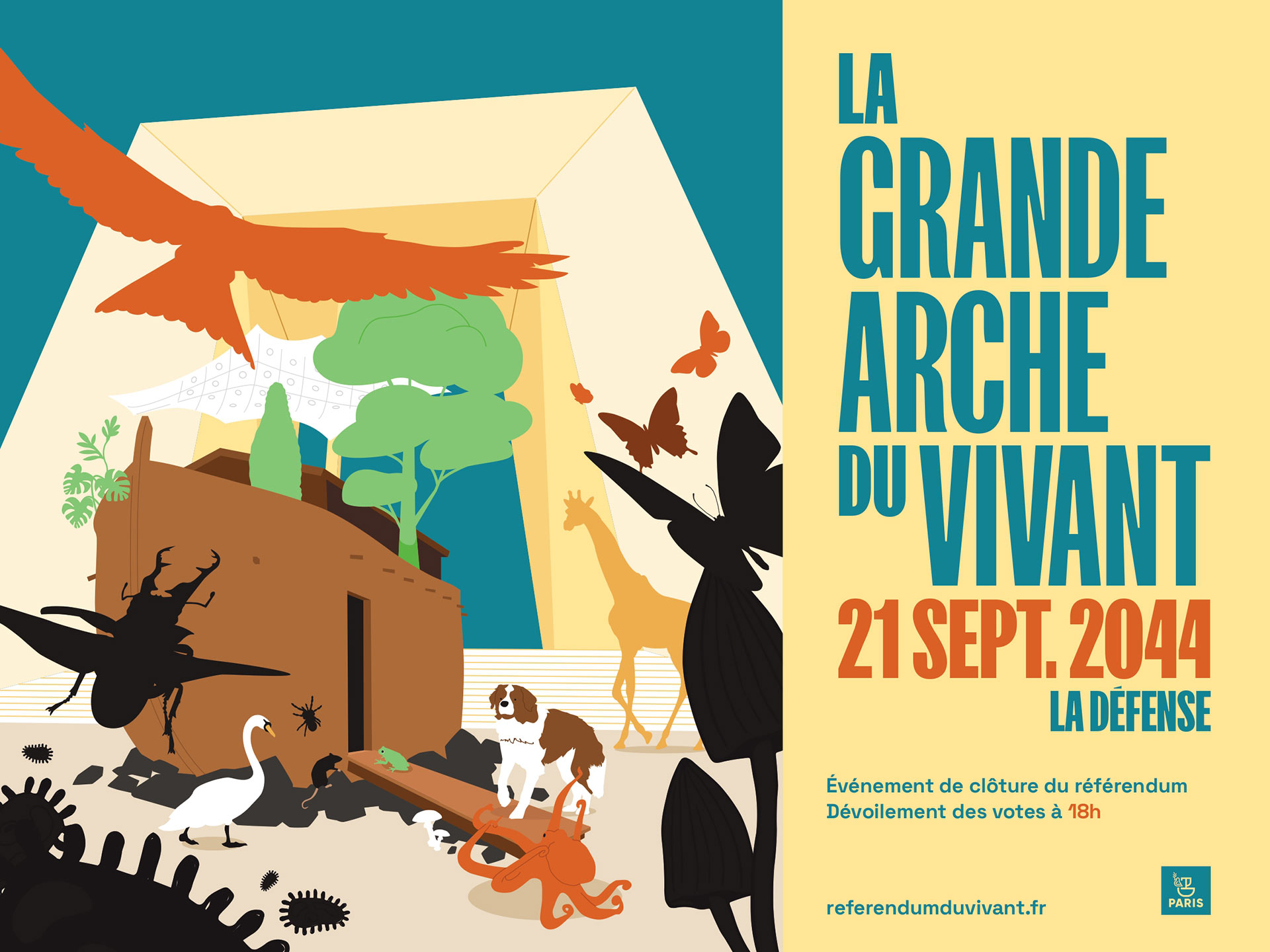
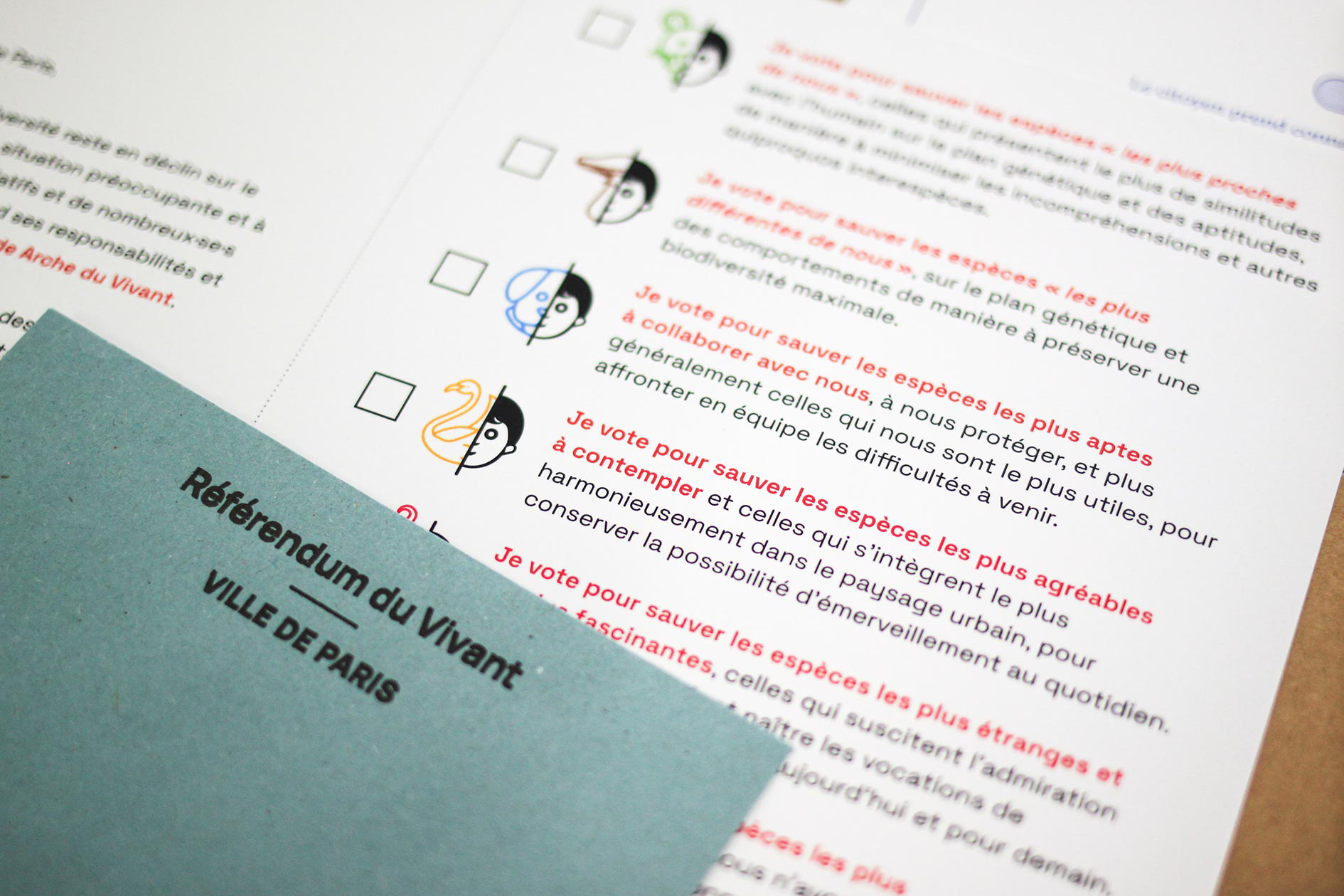
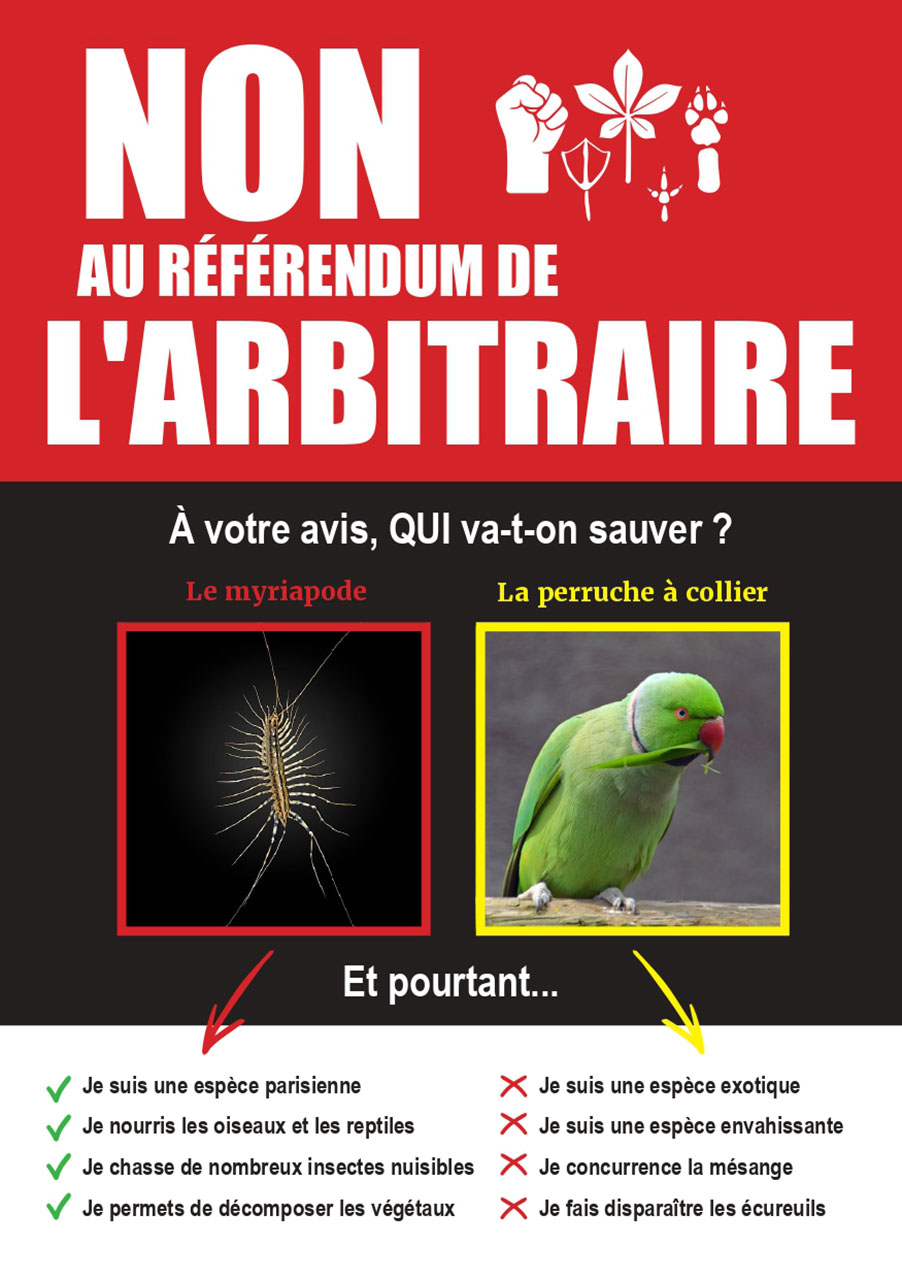
↑ The design fictions of The Great Arch of the Living imagine that by 2044, Parisian people must decide by referendum which species to save as a priority.

Paris adopts a new policy called ‘Good Neighbours, Good Ancestors’, which permeates all aspects of daily life. For the municipality and its inhabitants and users, this means considering the impact of every decision on the ‘neighbourhood’. This could relate to spatial proximity – from the end of the street to the end of the globe – or temporal proximity, meaning future generations. Reflecting this change in mentality, the expression ‘weighing the pros and cons’ has been transformed to distinguish the trivial from the essential: now we ’weigh the 7 and the 7000′, considering the impact an action might have within a 7000 km radius and for the next 7 generations. A way to take care of all living beings, here and now, as well as elsewhere and tomorrow.
Excerpt from the scenario
Good Neighbours, Good Ancestors

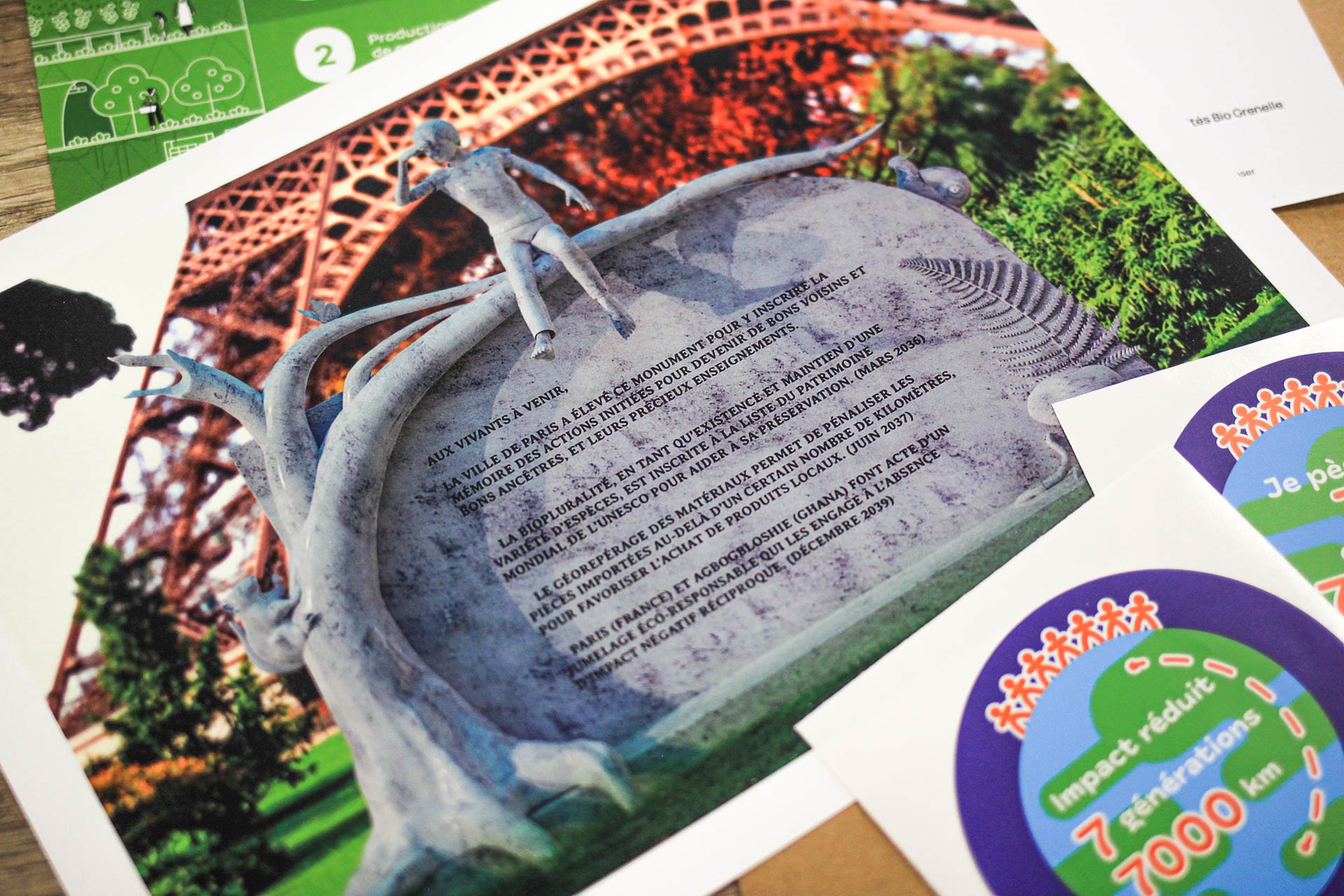
↑ In 2038, “Good Neighbours, Good Ancestors” is the new guiding principle of the City of Paris, as evidenced by this Monument to Future Living Beings and promotional stickers inviting people to weigh “the 7 and the 7000”.
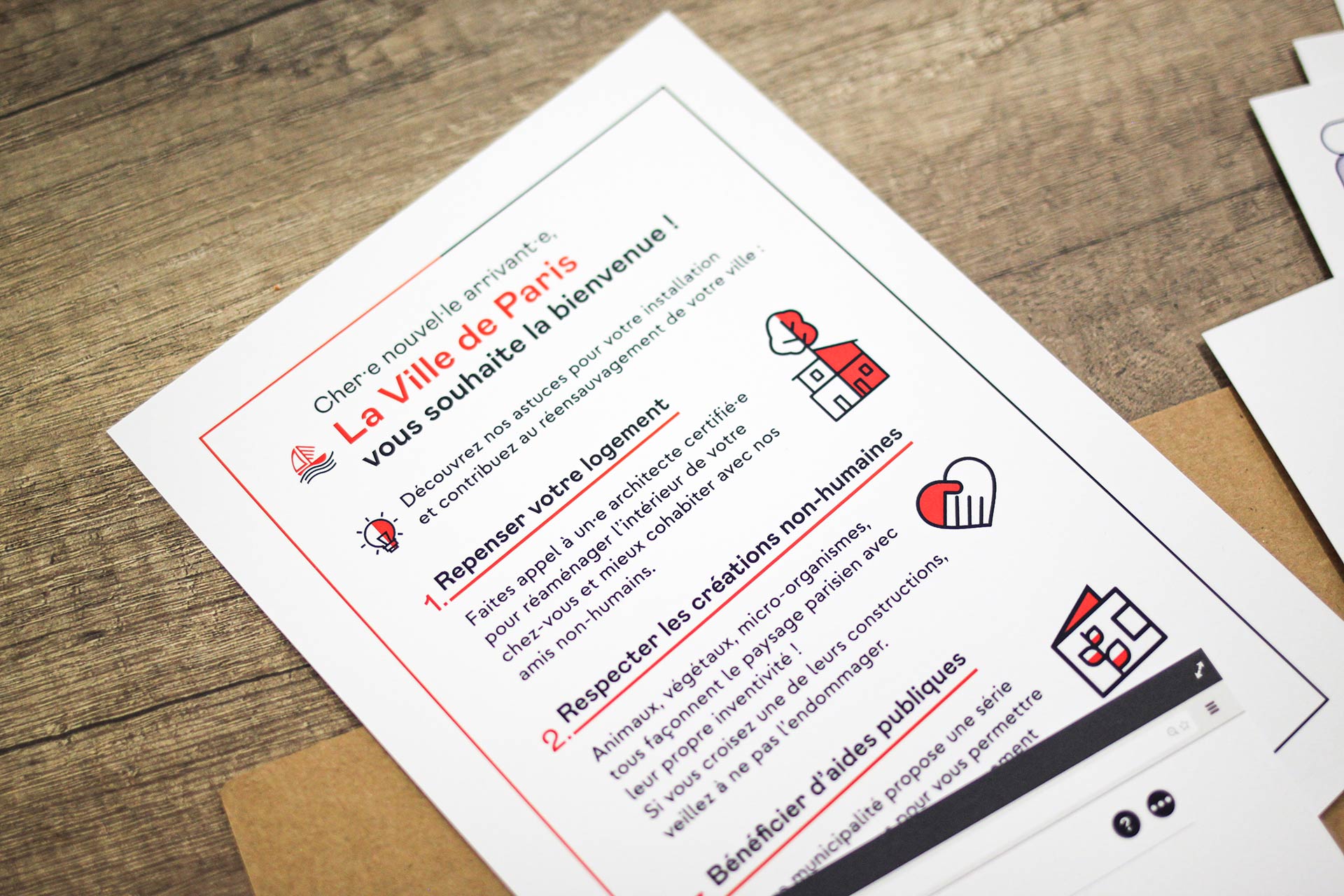
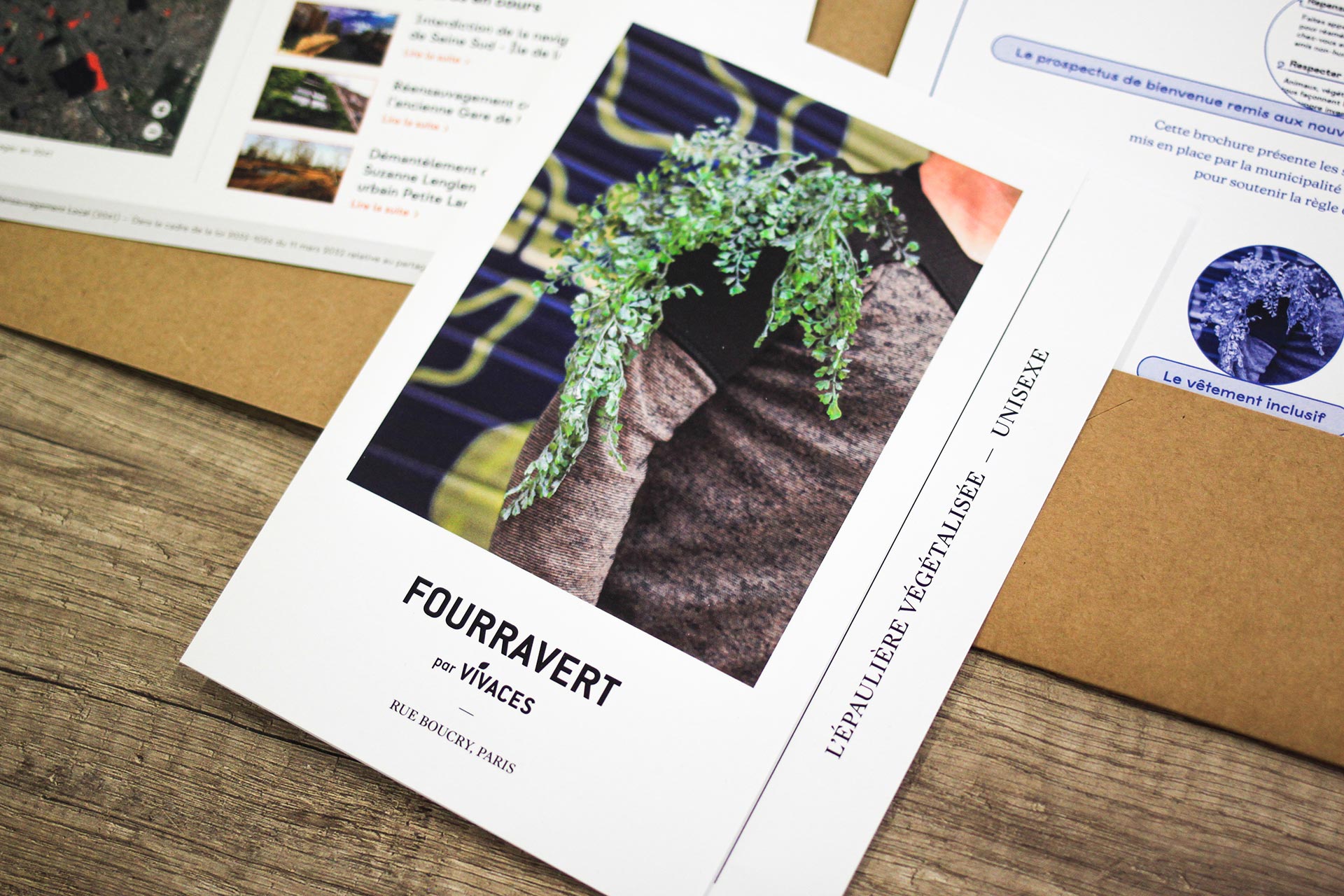
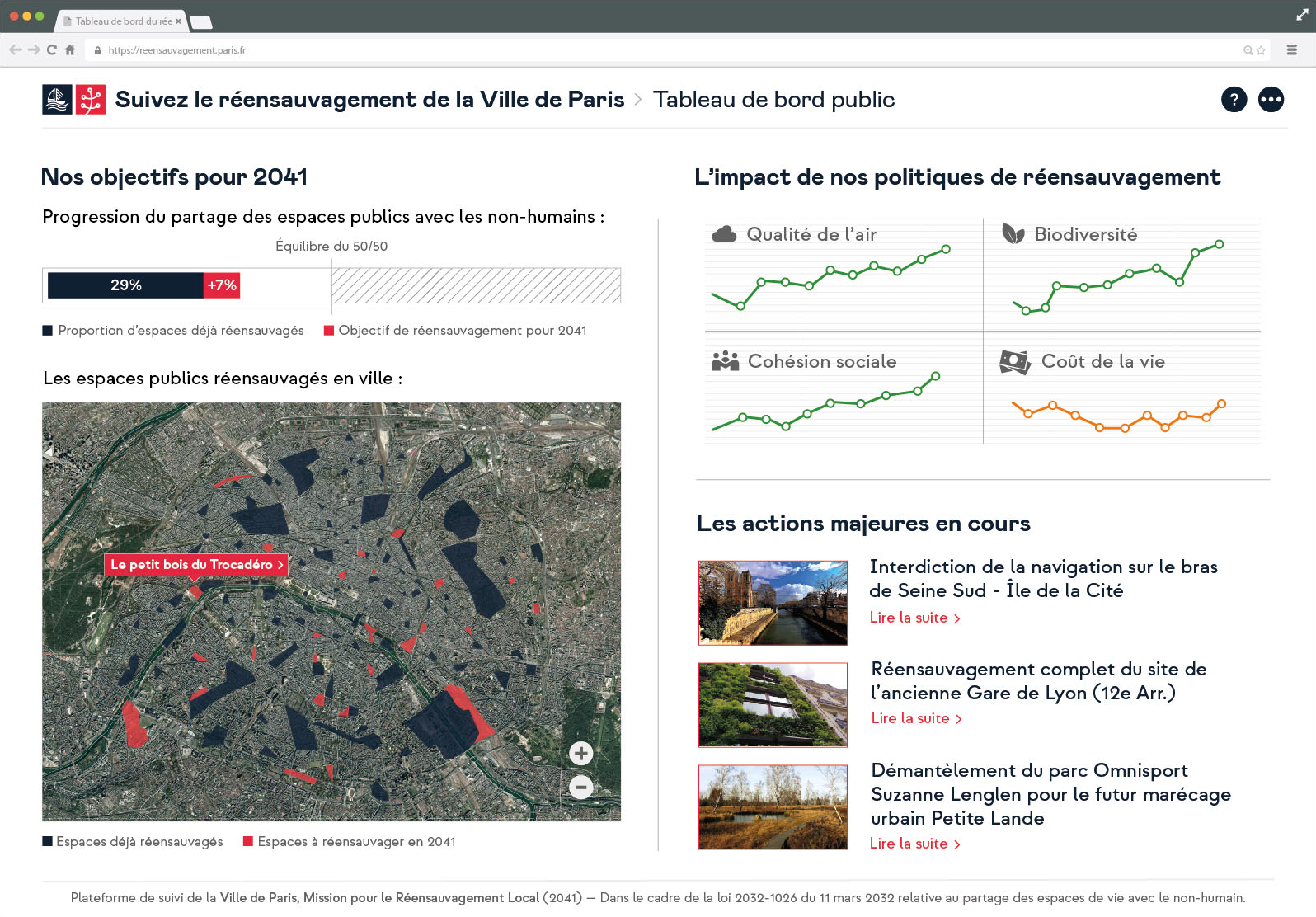
↑ The 50/50 Rule, or rewilding law, requires sharing 50% of living space with non-human life.

Setting aside past rivalries and the infamous ‘territorial mille-feuille,’ the local authorities of Île-de-France, led by the City of Paris, have come together to form the Francilian Biomigration Office (Bureau Francilien de Biomigration — BFB, also known as ‘Biomig’). And for good reason, biodiversity erosion knows no borders, prompting a metropolitan and, by extension, regional effort.
The BFB is a unique organisation. It has a specific prerogative: to identify the natural needs of territories and accordingly direct the movement of individuals and their families. Residents are thus invited to migrate to destinations pre-designated by the Office, based on two main criteria: one, to preserve areas whose biodiversity must regenerate, and two, to redistribute skills needed by cities or neighbourhoods to compensate for the loss of biodiversity.
Excerpt from the scenario
Everyone Is a Biomigrant

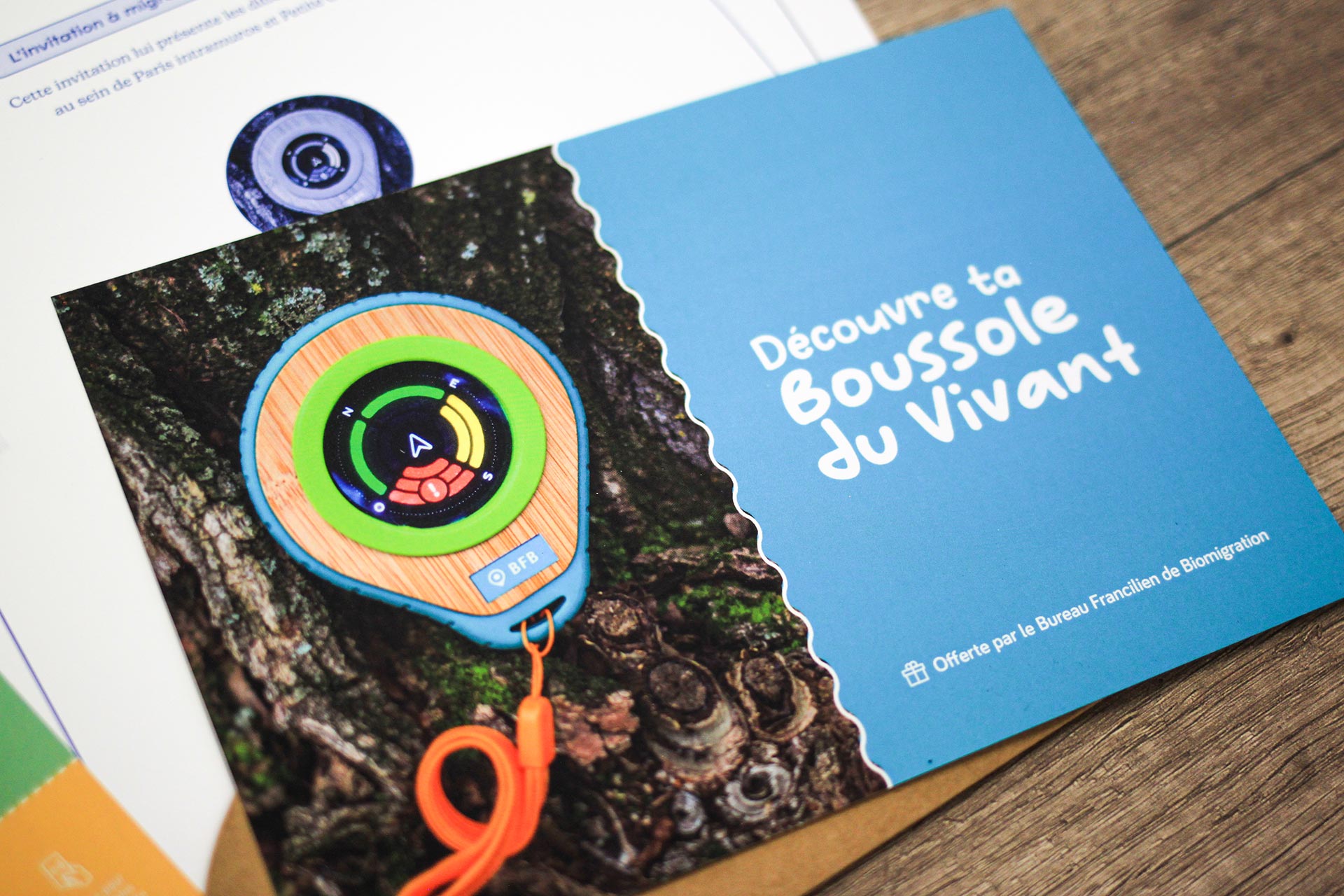
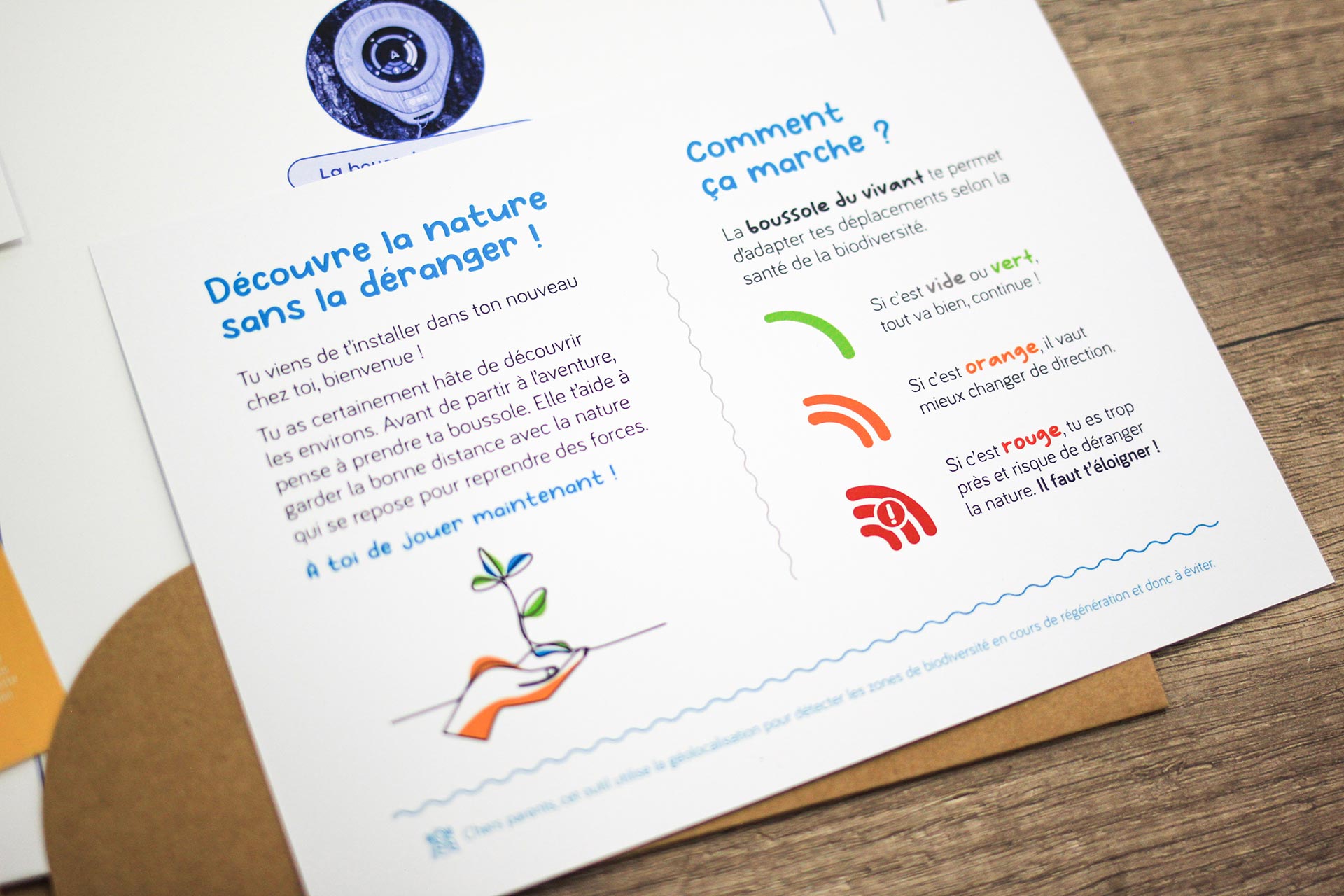
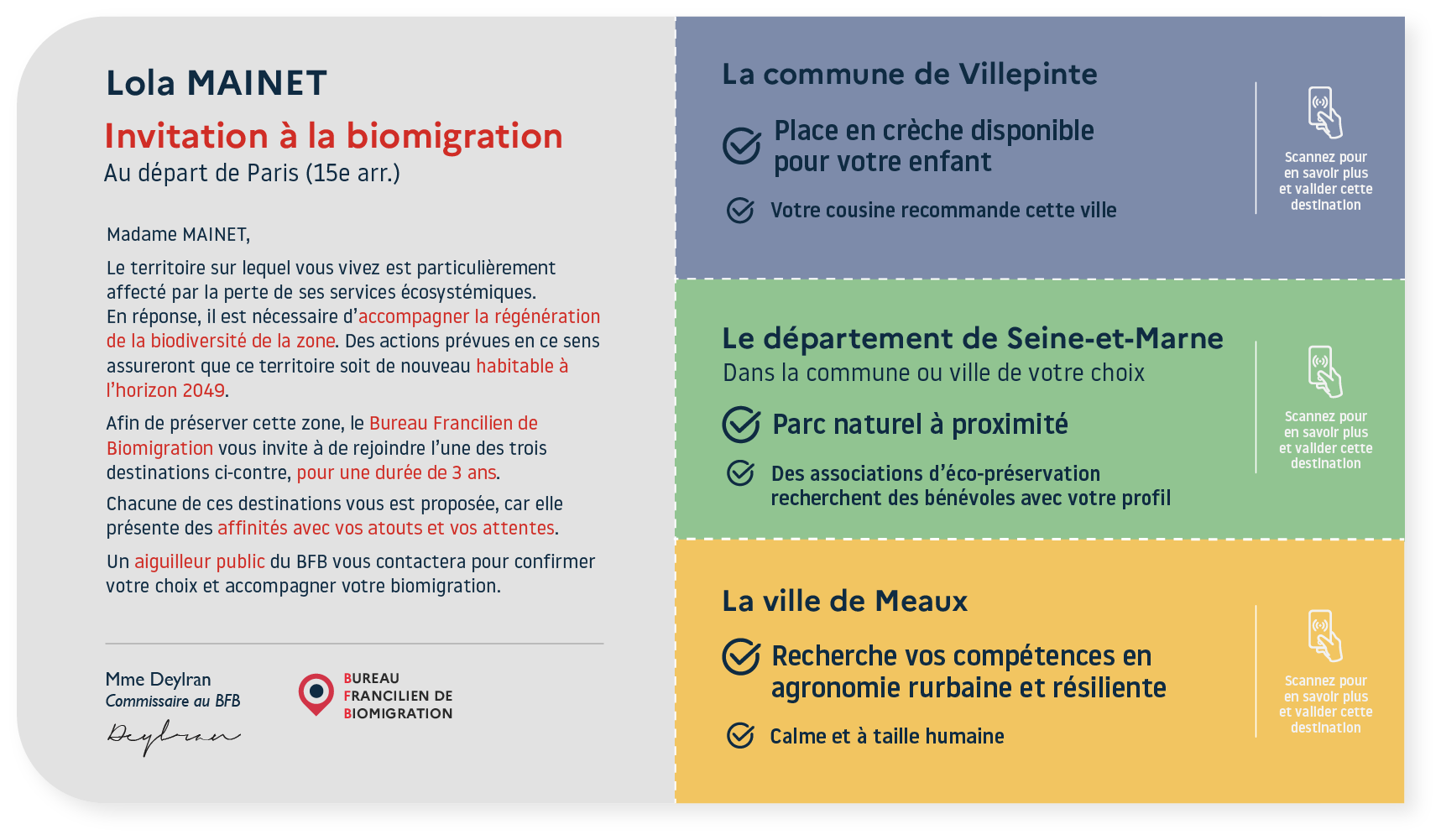
↑ Everyone Is a Biomigrant (Toutes et tous biomigrants) immerses us in a future where we change locality every three years to allow local biodiversity to regenerate.
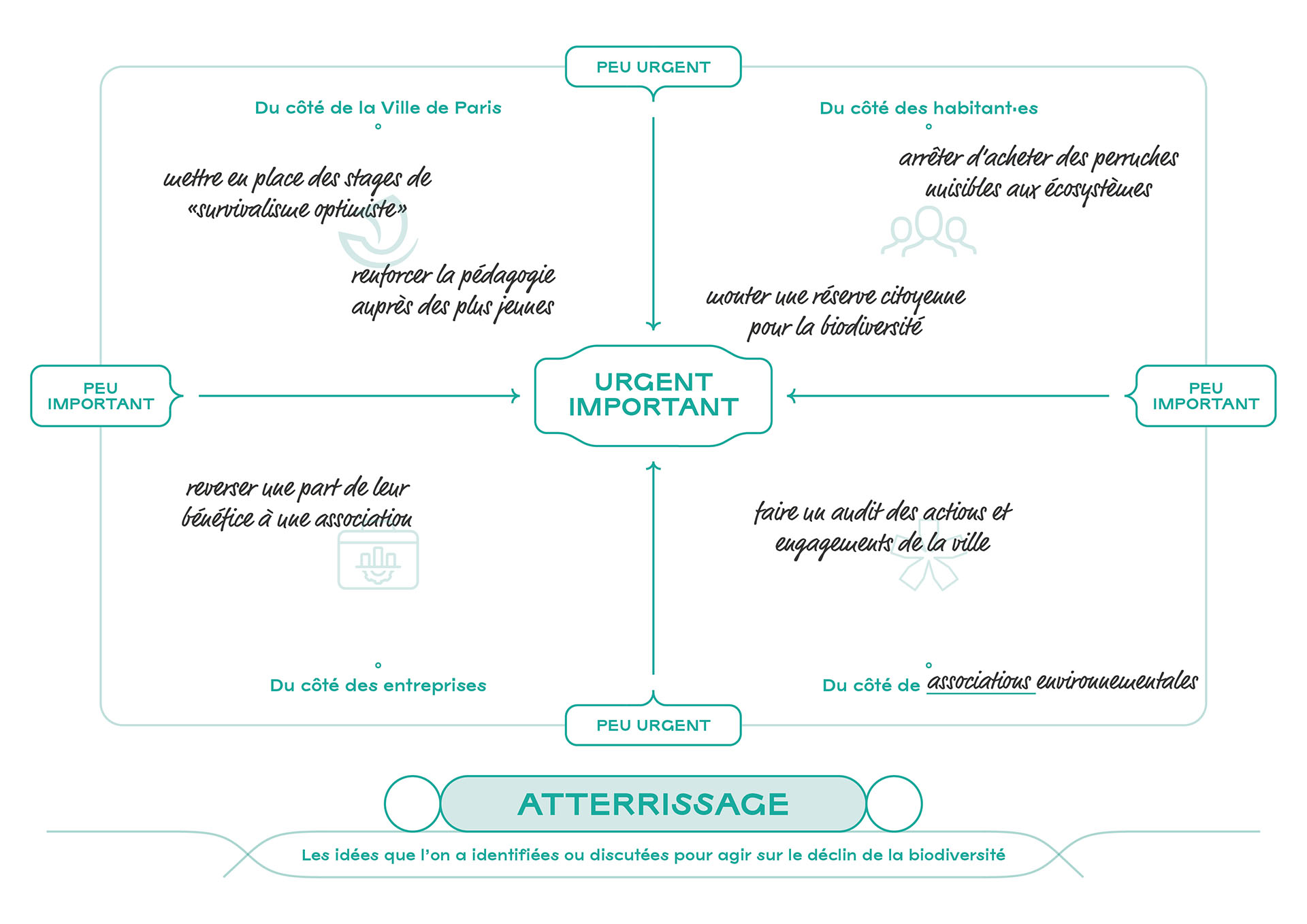
↑ An action-landing tool for summarising action points that emerge from workshop discussions.
The outputs and lessons learned from this initiative have contributed to the redesign of the City of Paris’s resilience strategy and the revision of its Biodiversity Plan, launched in 2024.
